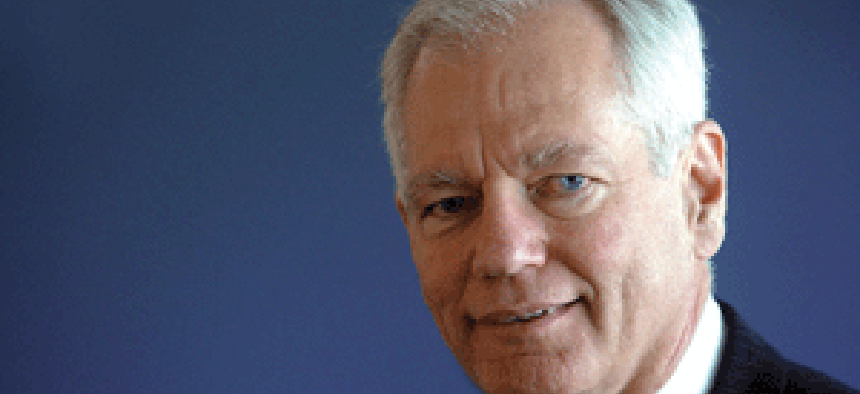Jack Jones - NIH: IT systems pilot


Connecting state and local government leaders
Most everything Jack Jones learned about leadership he learned on the fly, so to speak, in the Navy. As a flight navigator, he participated in a number of simulated emergencies, in which instructors increased the stress level by distracting their students to teach them to focus on the job at hand. The lessons from that training became second nature.

'When you're flying or working, you can only do what you can do, and figure out what that is and get on with it.' -- Jack Jones
Olivier Douliery
Wide participation
As you move up to leadership roles, you're looking more broadly at things and you're accepting longer time frames for seeing your ideas come to fruition. If you're seeking a leadership position, you should think about how that will feel to you. If you want the additional breadth and can accept the fact that it takes longer to see these ideas come to fruition, then in fact you'll be happy with the decision you made. If you'll find those things more frustrating than the benefit of having the broader impact, you should wait awhile longer.
Q: What's the best advice you received, and from whom?
The best advice I received was from one of the human resources people in my history, who advised me to choose jobs carefully that were aligned with my skills, desires and my innate tendencies. He said, you're a broad thinker, you like to think about the future, you're an idea person. You should be in a field that is in fact planning and developing the future.
Q: Why government service?
The characteristics that were important to me about the National Institutes of Health were: 1) because of the diversity required for research, it's a very interesting IT position because you see the same diversity of need and growth that you see in the Internet; 2) there was when I came here, and continues to grow, an interest in governance of IT, such as how do we make effective IT decisions and what is the executive input to that; 3) there are a lot of smart people here and it's interesting to work with smart people.
Q: How important is mentoring in developing a good manager?
I think it's important. It needs to be tuned to the individual and how they work and perceive things. I had some people who for me were mentors, but for whom other people wouldn't have thought of them very much as mentors. I worked for two vice presidents at Sandia National Laboratories (in the Energy Department), and they gave me interesting insights into things that helped me develop.
In one instance, I questioned how he handled a meeting, which implied criticism that he had not been authoritative enough in the meeting. He had a short discussion with me, of which the gist was: I have a broad range of behaviors I can exhibit and here's why I didn't think that was an appropriate behavior for the meeting and why I chose this one.
For me, it was an important learning experience to think about developing a broad range of behaviors and to choose ones that would be effective in a particular situation to achieve the goals that I was after. Other people may need different approaches that are based on their needs and understandings and where they need development.
At Sandia, I mentored a couple of people. I did that based more on where their interests lay, by finding out what they were trying to achieve in their career, and helping them understand what I thought their strengths were, and where I thought they could make important development. I then working out opportunities for them to have experiences and training that would help them develop.
Q: What part does fun play in your work?
I think I have the world's greatest job. I think fun generates energy and enthusiasm and that produces much better results.
Q: How do you balance work and home life?
By going home and putting my BlackBerry where I can't hear it. When I first got here and got my BlackBerry, I left it on my nightstand several nights in a row. One morning my wife said'or maybe it was in the middle of the night when it went off'you have a choice. You can sleep with me or you can sleep with your BlackBerry, but you can't do both because I'm not waking up when you're BlackBerry goes off. (My boss was sending me e-mails at 3 a.m.) My wife's more important than my BlackBerry.
NEXT STORY: Col. Jacob Haynes - Defense: Mr. Fix-IT




